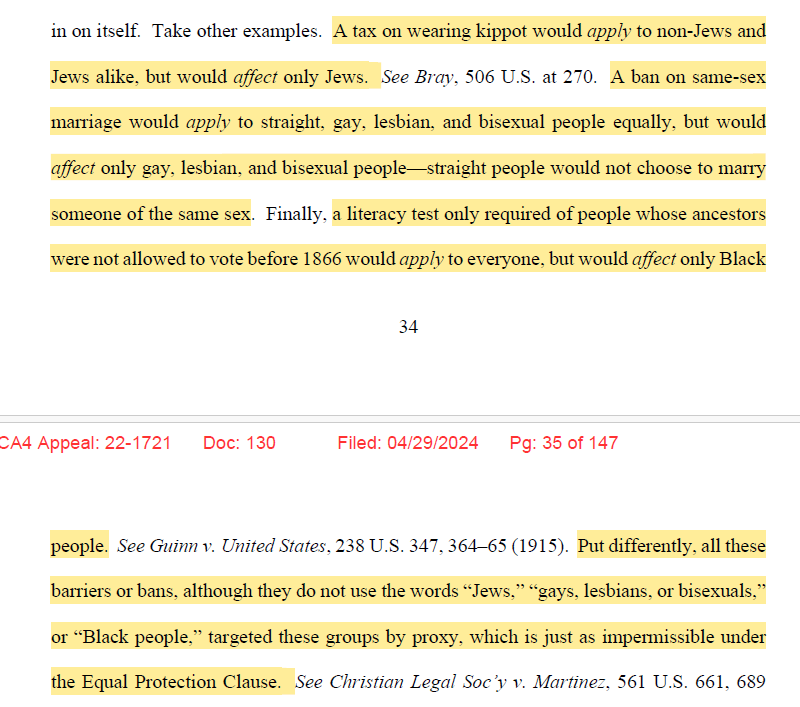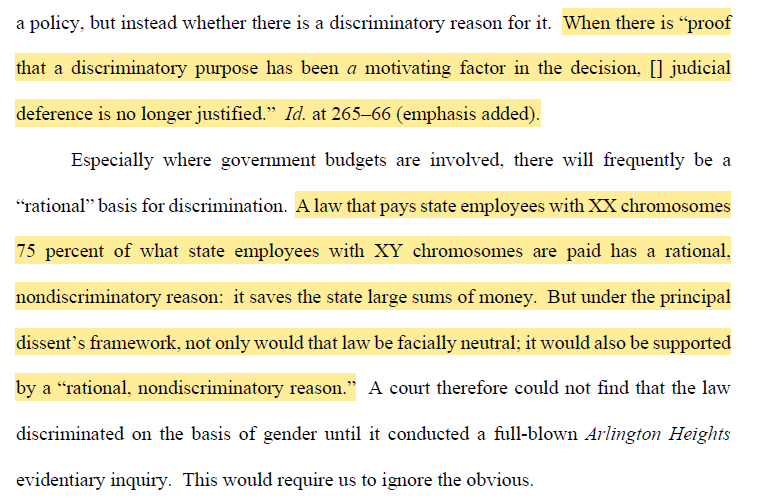National
Chelsea Manning released after nearly 7 years in prison
Controversial figure released classified information to Wikileaks


Chelsea Manning was released from prison Wednesday. (Portrait by Alicia Neal)
After spending nearly seven years in prison for leaking classified information, the Army has released Chelsea Manning as a result of clemency granted by former President Obama.
Manning in a statement acknowledged she had an early release from prison as a result of former President Obama granting her clemency as one of his final acts in office, which considerably reduced her initial 35-year sentence.
“After another anxious four months of waiting, the day has finally arrived,” Manning said. “I am looking forward to so much! Whatever is ahead of me is far more important than the past. I’m figuring things out right now – which is exciting, awkward, fun, and all new for me.”
Nancy Hollander and Vincent Ward, Manning’s clemency and appellate lawyers with the American Civil Liberties Union, confirmed Wednesday in a joint statement Manning had been released on the same day from Fort Leavenworth in Kansas.
“We are able to confirm that Chelsea Manning has been released safely from military prison,” Hollander and Ward said. “Thank you to everyone for ensuring her safe release and respecting her privacy as she starts to adjust to life outside of prison and rebuild her life following seven years of confinement. Chelsea has expressed her deep appreciation to her supporters and looks forward to the future.”
Convicted in 2013 for leaking classified documents and diplomatic cables to Wikileaks, Manning has been a controversial figure. Supporters say a video of a Baghdad airstrike she made public exposed war crimes the United States committed during the Iraq war, but opponents point to a subsequent dump of 251,287 State Department cables as evidence she was indiscriminately leaking information and jeopardized the lives and work of U.S. intelligence analysts.
Manning has served more time in prison than anyone else in U.S. history convicted of leaking classified information. According to the ACLU, she spent 2,545 days in prison, or 6 years, 11 months and 18 days. That includes time spent in prison during her trial and after she received her sentence.
Manning, who came out as transgender on the first day of her sentence, has faced challenges in federal prison and is confirmed to have attempted suicide at least twice, once in July and again as she was sentenced to solitary confinement in November for that initial attempt.
The Army initially refused to provide her with hormone therapy, but agreed to provide the treatment last year as a result of a lawsuit filed by the ACLU. The Army also initially refused to grant her gender reassignment surgery, but reversed its decision in September after she underwent a hunger strike.
Chase Strangio, a transgender advocate and staff attorney with the ACLU, said in a statement that Manning demonstrated “strength and heroism” through her struggles in prison.
“Through extended periods of solitary confinement and up against the government’s insistence on denying her medical care and existence as a woman, Chelsea has emerged with grace, resilience, and an inspiring amount of love for others,” Strangio said. “I am humbled to fight alongside such a fierce advocate for justice.”
LGBT groups in a joint letter last year led by ACLU had joined calls on Obama to commute the sentence for Manning, who applied for clemency with the White House in November. Missing from the letter was the Human Rights Campaign, although the group applauded Obama when he announced clemency for her.
Some LGBT advocates celebrated the release of Manning from prison, arguing she was a whistleblower whose actions exposed abuses during the Bush and Obama administrations.
Andy Thayer, co-founder of the Chicago-based Gay Liberation Network, said in a statement his organization will host a “welcome home” party for Manning along with LGBT organizations in other cities worldwide.
“Chelsea Manning is the LGBTQ movement’s greatest-ever anti-war activist and whistleblower about government crimes, and yet she was shunned by virtually every large LGBTQ non-profit,” Thayer said. “The reason is simple: her revelations deeply embarrassed not only the Republicans, but especially the Obama administration.”
Consistent with Republican opposition to Obama’s clemency for Manning, the Log Cabin Republicans was one group withholding applause for her upon her release.
There are many transgender heroes — Chelsea Manning is not one of them https://t.co/yTQqkIzsEe
— LogCabinRepublicans (@LogCabinGOP) May 17, 2017
National
United Methodist Church removes 40-year ban on gay clergy
Delegates also voted for other LGBTQ-inclusive measures

The United Methodist Church on Wednesday removed a ban on gay clergy that was in place for more than 40 years, voting to also allow LGBTQ weddings and end prohibitions on the use of United Methodist funds to “promote acceptance of homosexuality.”
Overturning the policy forbidding the church from ordaining “self-avowed practicing homosexuals” effectively formalized a practice that had caused an estimated quarter of U.S. congregations to leave the church.
The New York Times notes additional votes “affirming L.G.B.T.Q. inclusion in the church are expected before the meeting adjourns on Friday.” Wednesday’s measures were passed overwhelmingly and without debate. Delegates met in Charlotte, N.C.
According to the church’s General Council on Finance and Administration, there were 5,424,175 members in the U.S. in 2022 with an estimated global membership approaching 10 million.
The Times notes that other matters of business last week included a “regionalization” plan, which gave autonomy to different regions such that they can establish their own rules on matters including issues of sexuality — about which international factions are likelier to have more conservative views.
Federal Government
Republican state AGs challenge Biden administration’s revised Title IX policies
New rules protect LGBTQ students from discrimination

Four Republicans state attorneys general have sued the Biden-Harris administration over the U.S. Department of Education’s new Title IX policies that were finalized April 19 and carry anti-discrimination protections for LGBTQ students in public schools.
The lawsuit filed on Tuesday, which is led by the attorneys general of Kentucky and Tennessee, follows a pair of legal challenges from nine Republican states on Monday — all contesting the administration’s interpretation that sex-based discrimination under the statute also covers that which is based on the victim’s sexual orientation or gender identity.
The administration also rolled back Trump-era rules governing how schools must respond to allegations of sexual harassment and sexual assault, which were widely perceived as biased in favor of the interests of those who are accused.
“The U.S. Department of Education has no authority to let boys into girls’ locker rooms,” Tennessee Attorney General Jonathan Skrmetti said in a statement. “In the decades since its adoption, Title IX has been universally understood to protect the privacy and safety of women in private spaces like locker rooms and bathrooms.”
“Florida is suing the Biden administration over its unlawful Title IX changes,” Florida Gov. Ron DeSantis wrote on social media. “Biden is abusing his constitutional authority to push an ideological agenda that harms women and girls and conflicts with the truth.”
After announcing the finalization of the department’s new rules, Education Secretary Miguel Cardona told reporters, “These regulations make it crystal clear that everyone can access schools that are safe, welcoming and that respect their rights.”
The new rule does not provide guidance on whether schools must allow transgender students to play on sports teams corresponding with their gender identity to comply with Title IX, a question that is addressed in a separate rule proposed by the agency in April.
LGBTQ and civil rights advocacy groups praised the changes. Lambda Legal issued a statement arguing the new rule “protects LGBTQ+ students from discrimination and other abuse,” adding that it “appropriately underscores that Title IX’s civil rights protections clearly cover LGBTQ+ students, as well as survivors and pregnant and parenting students across race and gender identity.”
Federal Government
4th Circuit rules gender identity is a protected characteristic
Ruling a response to N.C., W.Va. legal challenges

BY ERIN REED | The 4th U.S. Circuit Court of Appeals ruled Monday that transgender people are a protected class and that Medicaid bans on trans care are unconstitutional.
Furthermore, the court ruled that discriminating based on a diagnosis of gender dysphoria is discrimination based on gender identity and sex. The ruling is in response to lower court challenges against state laws and policies in North Carolina and West Virginia that prevent trans people on state plans or Medicaid from obtaining coverage for gender-affirming care; those lower courts found such exclusions unconstitutional.
In issuing the final ruling, the 4th Circuit declared that trans exclusions were “obviously discriminatory” and were “in violation of the equal protection clause” of the Constitution, upholding lower court rulings that barred the discriminatory exclusions.
The 4th Circuit ruling focused on two cases in states within its jurisdiction: North Carolina and West Virginia. In North Carolina, trans state employees who rely on the State Health Plan were unable to use it to obtain gender-affirming care for gender dysphoria diagnoses.
In West Virginia, a similar exclusion applied to those on the state’s Medicaid plan for surgeries related to a diagnosis of gender dysphoria. Both exclusions were overturned by lower courts, and both states appealed to the 4th Circuit.
Attorneys for the states had argued that the policies were not discriminatory because the exclusions for gender affirming care “apply to everyone, not just transgender people.” The majority of the court, however, struck down such a claim, pointing to several other cases where such arguments break down, such as same-sex marriage bans “applying to straight, gay, lesbian, and bisexual people equally,” even though straight people would be entirely unaffected by such bans.
Other cases cited included literacy tests, a tax on wearing kippot for Jewish people, and interracial marriage in Loving v. Virginia.
See this portion of the court analysis here:

Of particular note in the majority opinion was a section on Geduldig v. Aiello that seemed laser-targeted toward an eventual U.S. Supreme Court decision on discriminatory policies targeting trans people. Geduldig v. Aiello, a 1974 ruling, determined that pregnancy discrimination is not inherently sex discrimination because it does not “classify on sex,” but rather, on pregnancy status.
Using similar arguments, the states claimed that gender affirming care exclusions did not classify or discriminate based on trans status or sex, but rather, on a diagnosis of gender dysphoria and treatments to alleviate that dysphoria.
The majority was unconvinced, ruling, “gender dysphoria is so intimately related to transgender status as to be virtually indistinguishable from it. The excluded treatments aim at addressing incongruity between sex assigned at birth and gender identity, the very heart of transgender status.” In doing so, the majority cited several cases, many from after Geduldig was decided.
Notably, Geduldig was cited in both the 6th and 11th Circuit decisions upholding gender affirming care bans in a handful of states.
The court also pointed to the potentially ridiculous conclusions that strict readings of what counts as proxy discrimination could lead to, such as if legislators attempted to use “XX chromosomes” and “XY chromosomes” to get around sex discrimination policies:
Importantly, the court also rebutted recent arguments that Bostock applies only to “limited Title VII claims involving employers who fired” LGBTQ employees, and not to Title IX, which the Affordable Care Act’s anti-discrimination mandate references. The majority stated that this is not the case, and that there is “nothing in Bostock to suggest the holding was that narrow.”
Ultimately, the court ruled that the exclusions on trans care violate the Equal Protection Clause of the Constitution. The court also ruled that the West Virginia Medicaid Program violates the Medicaid Act and the anti-discrimination provisions of the Affordable Care Act.
Additionally, the court upheld the dismissal of anti-trans expert testimony for lacking relevant expertise. West Virginia and North Carolina must end trans care exclusions in line with earlier district court decisions.
The decision will likely have nationwide impacts on court cases in other districts. The case had become a major battleground for trans rights, with dozens of states filing amicus briefs in favor or against the protection of the equal process rights of trans people. Twenty-one Republican states filed an amicus brief in favor of denying trans people anti-discrimination protections in healthcare, and 17 Democratic states joined an amicus brief in support of the healthcare rights of trans individuals.
Many Republican states are defending anti-trans laws that discriminate against trans people by banning or limiting gender-affirming care. These laws could come under threat if the legal rationale used in this decision is adopted by other circuits. In the 4th Circuit’s jurisdiction, West Virginia and North Carolina already have gender-affirming care bans for trans youth in place, and South Carolina may consider a similar bill this week.
The decision could potentially be used as precedent to challenge all of those laws in the near future and to deter South Carolina’s bill from passing into law.
The decision is the latest in a web of legal battles concerning trans people. Earlier this month, the 4th Circuit also reversed a sports ban in West Virginia, ruling that Title IX protects trans student athletes. However, the Supreme Court recently narrowed a victory for trans healthcare from the 9th U.S. Circuit Court of Appeals and allowed Idaho to continue enforcing its ban on gender-affirming care for everyone except the two plaintiffs in the case.
Importantly, that decision was not about the constitutionality of gender-affirming care, but the limits of temporary injunctions in the early stages of a constitutional challenge to discriminatory state laws. It is likely that the Supreme Court will ultimately hear cases on this topic in the near future.
Celebrating the victory, Lambda Legal Counsel and Health Care Strategist Omar Gonzalez-Pagan said in a posted statement, “The court’s decision sends a clear message that gender-affirming care is critical medical care for transgender people and that denying it is harmful and unlawful … We hope this decision makes it clear to policy makers across the country that health care decisions belong to patients, their families, and their doctors, not to politicians.”
****************************************************************************

Erin Reed is a transgender woman (she/her pronouns) and researcher who tracks anti-LGBTQ+ legislation around the world and helps people become better advocates for their queer family, friends, colleagues, and community. Reed also is a social media consultant and public speaker.
******************************************************************************************
The preceding article was first published at Erin In The Morning and is republished with permission.




















